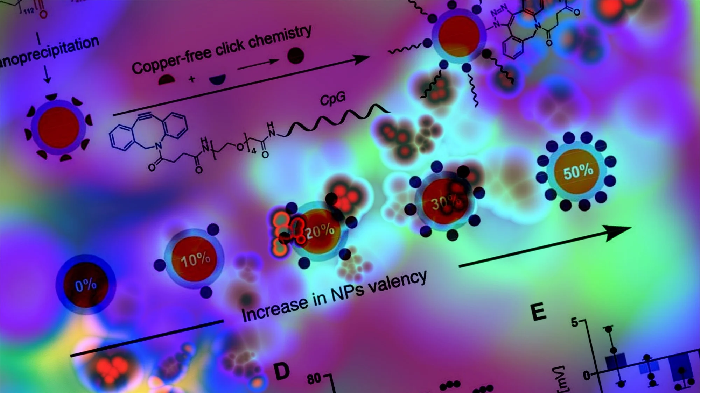Vaccine Adjuvants have long been recognized as a powerful tool in preventing infectious diseases and improving public health. In recent years, the development of vaccine adjuvants has further enhanced the effectiveness of vaccines, boosting immune responses and improving protective immunity. In this article, we explore the role of vaccine adjuvants and their significant contributions to modern vaccine development.
Innovation in technologies will create a big opportunity for vaccine adjuvants market growth. For instance, the use of nanoparticles as adjuvants have been gaining attention in recent years. Nanoparticles can be designed to carry vaccine antigens and adjuvants, providing targeted delivery to immune cells and enhancing the immune response.
According to The Datamintelligence vaccine adjuvants market reached USD 739.7 million in 2022 and is projected to witness lucrative growth by reaching up to USD 1,819.2 million by 2030. The global vaccine adjuvants market is expected to exhibit a CAGR of 12.2% during the forecast period (2023-2030).
Vaccine Adjuvants: Current Trends and Future Developments
Vaccine adjuvants have revolutionized the field of vaccinology, enabling the development of more effective and targeted vaccines. These substances, when combined with vaccine antigens, enhance immune responses, leading to improved vaccine efficacy and durability. In this article, we explore the current trends and future developments in vaccine adjuvant research, highlighting their potential to shape the future of vaccination.
- Advancements in Adjuvant Formulations:
Researchers are actively exploring novel adjuvant formulations to optimize immune responses. New adjuvant platforms are being developed, including lipid-based nanoparticles, virus-like particles, and recombinant proteins. These platforms offer improved stability, targeted antigen delivery, and enhanced immune activation, paving the way for next-generation vaccines.
- Adjuvant Combinations:
Combining multiple adjuvants has emerged as a promising strategy to further enhance immune responses. By leveraging the unique properties of different adjuvants, scientists can elicit a broader and more robust immune response. Adjuvant combinations can stimulate multiple immune pathways, resulting in improved vaccine effectiveness against a wider range of pathogens.
- Personalized Adjuvants:
The concept of personalized medicine is expanding to include personalized adjuvants. Scientists are investigating the use of adjuvants tailored to specific patient characteristics, such as age, genetic background, or immune status. Customizing adjuvants based on individual factors can optimize immune responses and vaccine outcomes, leading to more personalized and effective vaccination strategies.
- Adjuvants for New Vaccine Approaches:
As novel vaccine approaches, such as mRNA and viral vector-based vaccines, gain prominence, the development of adjuvants tailored for these platforms becomes crucial. Adjuvants that can enhance the immunogenicity of these innovative vaccines are being explored, ensuring optimal immune activation and long-lasting protection.
Understanding Vaccine Adjuvants:
Vaccine adjuvants are substances incorporated into vaccines to enhance the immune response triggered by the vaccine antigens. While antigens alone can stimulate immune responses, adjuvants provide additional signals to the immune system, amplifying and directing the immune response towards the desired protective outcome. Adjuvants can be composed of various components, such as aluminum salts, oil-in-water emulsions, or molecular patterns derived from bacteria or viruses.
Enhancing Immune Responses:
- Increased Immunogenicity: Adjuvants help overcome the inherent limitations of some antigens by enhancing their immunogenicity. They stimulate innate immune cells, such as macrophages and dendritic cells, which capture and process antigens more efficiently. This leads to improved activation of adaptive immune responses, including the production of specific antibodies and the generation of memory cells for long-term protection.
- Improved Vaccine Efficacy: Adjuvants play a crucial role in improving vaccine efficacy, especially for subunit or recombinant vaccines that contain only specific components of a pathogen. By providing additional signals to the immune system, adjuvants ensure a robust and sustained immune response, resulting in higher antibody titers and increased cellular immune responses. This ultimately enhances the vaccine’s ability to prevent infection or reduce the severity of disease.
- Dose-Sparing Effect: Adjuvants allow for reduced vaccine antigen doses while maintaining the desired immune response. This dose-sparing effect is particularly important when there are limited supplies of vaccine antigens or when multiple doses are required to achieve optimal protection. Adjuvants enable more efficient use of resources, making vaccines more accessible and cost-effective.
- Broadening Vaccine Coverage: Some adjuvants can elicit broader immune responses by activating multiple arms of the immune system. This is especially beneficial when combating pathogens that undergo antigenic variation or when targeting multiple strains of a pathogen. Adjuvants help broaden the specificity of the immune response, providing protection against a wider range of strains or variants.
Safety and Regulation:
The safety of adjuvanted vaccines is of utmost importance. Extensive research and rigorous regulatory processes are employed to ensure the safety and efficacy of adjuvants before they are approved for use in vaccines. Adjuvants undergo comprehensive preclinical and clinical testing to assess their potential side effects and compatibility with specific vaccine formulations.
Future Perspectives:
The field of vaccine adjuvants continues to evolve, with ongoing research focused on developing more effective and tailored adjuvants. Scientists are exploring novel adjuvant formulations and adjuvant combinations to optimize immune responses for specific vaccines and target populations. Additionally, advancements in our understanding of the immune system and immunology will contribute to the development of adjuvants that generate even more potent and durable immune responses.
Conclusion:
Vaccine adjuvants play a critical role in enhancing immune responses and improving the efficacy of vaccines. They enable the development of highly effective vaccines that offer long-term protection against infectious diseases. As research and technology advance, vaccine adjuvants will continue to evolve, contributing to the development of safer, more effective vaccines and helping us address global health challenges.
Read more post here




